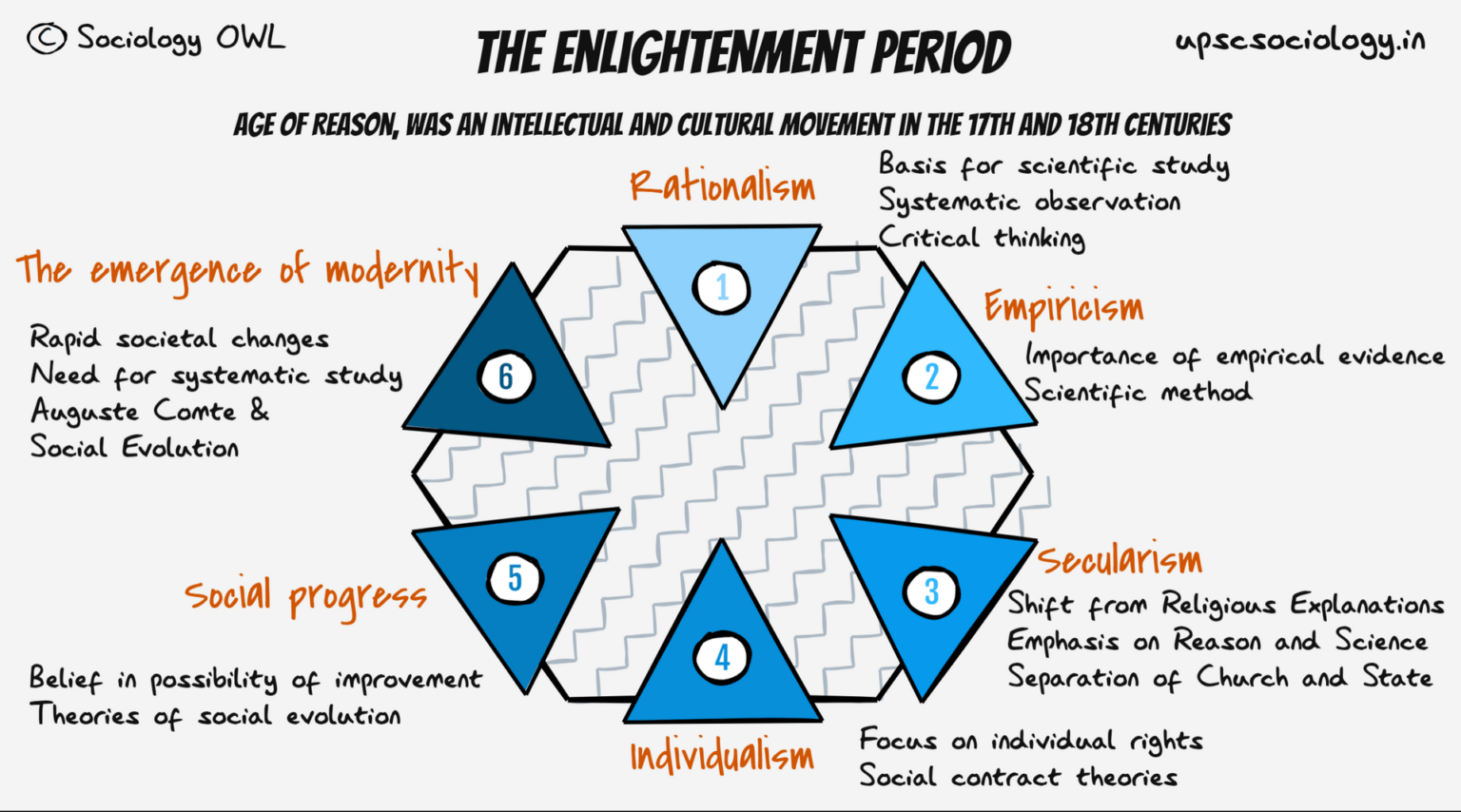Model Answers
Q: What aspects of Enlightenment do you think paved way for the emergence of sociology ? Elaborate.
Question asked in UPSC Sociology 2022 Paper 1. Download our app for last 20 year question with model answers.
Model Answer:
Enlightenment and Emergence of Sociology
The Enlightenment, an intellectual and philosophical movement that dominated Europe in the 18th century, played a crucial role in paving the way for the emergence of sociology as a distinct academic discipline. This period of radical change in thought and reason laid the groundwork for a systematic study of society and social phenomena.
Several key aspects of the Enlightenment contributed to the development of sociology:
1. Rationalism and Scientific Method:
• The Enlightenment emphasized reason and empirical observation as the primary sources of knowledge.
• This approach, championed by thinkers like René Descartes and Francis Bacon, encouraged the application of scientific methods to understand social phenomena.
• It led to the development of positivism in sociology, as seen in the works of Auguste Comte, who sought to apply scientific rigor to the study of society.
2. Secularization of Thought:
• The Enlightenment challenged religious dogma and promoted secular explanations for social phenomena.
• This shift allowed sociologists to examine society without religious constraints, focusing on observable social facts and structures.
• Émile Durkheim’s work on religion as a social phenomenon exemplifies this secular approach.
3. Belief in Progress and Social Reform:
• Enlightenment thinkers believed in the possibility of social progress through rational thought and action.
• This idea inspired early sociologists to study society with the aim of understanding and improving it.
• Saint-Simon and Auguste Comte’s concepts of social evolution and positivism reflect this optimistic view of social change.
4. Emphasis on Individual Rights and Equality:
• The Enlightenment promoted ideas of individual rights, liberty, and equality.
• These concepts became central to sociological inquiries into social stratification, power dynamics, and social justice.
• Karl Marx’s critique of capitalism and class struggle can be traced back to these Enlightenment ideals.
5. Systematic Study of Human Nature and Society:
• Enlightenment philosophers like John Locke and Jean-Jacques Rousseau developed theories about human nature and social contracts.
• This laid the foundation for sociological investigations into social structures, institutions, and human behavior.
• Herbert Spencer’s organic analogy of society builds upon this systematic approach to understanding social organization.
In conclusion, the Enlightenment’s emphasis on reason, empiricism, secularism, progress, and systematic inquiry provided the intellectual framework for the emergence of sociology. By challenging traditional ways of thinking and promoting a scientific approach to understanding the world, the Enlightenment created an environment conducive to the development of sociology as a distinct academic discipline focused on the systematic study of society and social behavior.

More Questions:
Download our app for UPSC Sociology Optional - Syllabus, NCERT Books, IGNOU Books, Past Paper with Model Answers, Topper Notes & Answer Sheet.


